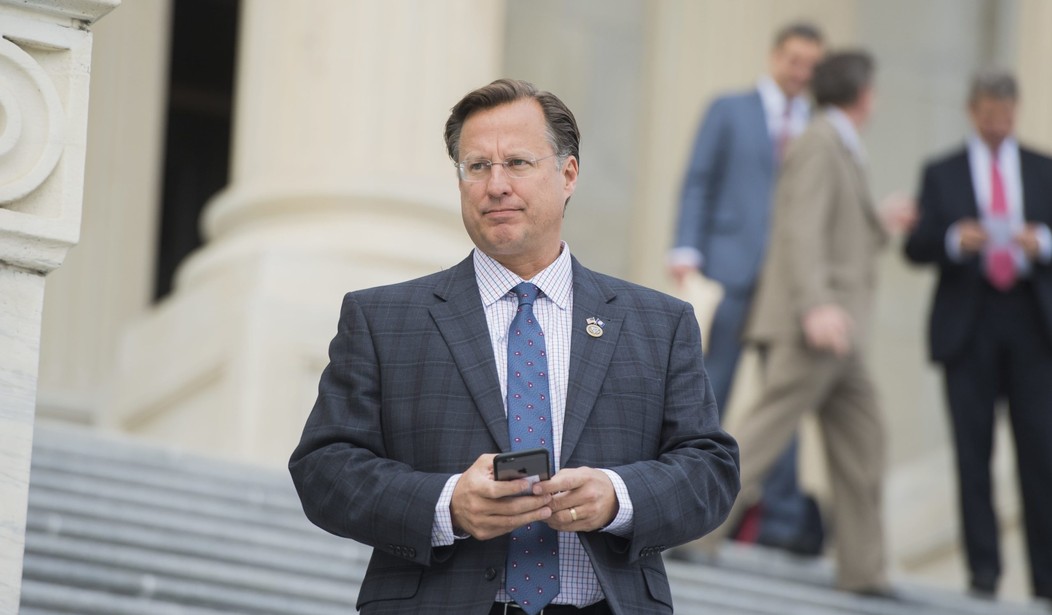WASHINGTON – Rep. Dave Brat (R-Va.) said he is still learning about what’s “buried” in the 2-year budget bill that Congress passed last week, which increases spending by about $300 billion.
President Trump quickly signed the budget bill into law last Friday.
“We just passed a budget bill. We’re still learning what’s in it. It’s amazing. I mean, I just learned that halfway buried in the budget bill the Senate announced they’re not going to do a budget next year – that’s brilliant,” Brat said during a discussion with Rep. Jamie Raskin (D-Md.) at American University’s School of Public Affairs on Tuesday about the possibility of bipartisanship in “Trump’s America.”
“You really can’t make it up. And it is broken, and I want less federal. I want 50 state experiments. Let’s see who gets it right and people will copy them,” he added.
Brat endorsed the idea of having a “single subject rule” for federal budgeting, similar to the system in states like Virginia.
“In Virginia, the process is just like Jamie [Raskin] has described, every person can come up to the mic. In Virginia, every law had to have one topic. Boy, that would be a revolution right there – single subject rule – if you could get that through the House, that would be a miracle because then you don’t get to add all the special interests off the subsections,” Brat said.
“The Republicans, right, we want a smaller federal footprint and if you look at the rise of corruption and money and whatever, everyone including churches, now, instead of having pancake dinners for the poor are hiring lobbyists to come up to D.C.,” he noted.
The two-year budget bill increases the Department of Defense budget by $165 billion above the existing spending caps and increases domestic spending by $131 billion over current levels.
Raskin said the legislative process for the long-term budget deal was a “nightmare.”
“It came over in the middle of the night and nobody had read it and very reckless spending – like the tax bill was extraordinarily reckless spending,” he said. “It is going to drive a $1.5 trillion deficit hole into what’s already a big budget hole that we’ve got. I think there’s a lot of irresponsibility that’s taking place.”
In response, Brat explained that he called the Tax Foundation and they told him the tax reform law would not pay for itself unless the annual economic growth rate is 2.75 percent.
“I said, ‘good, because I think we’re going to hit that pretty easily,’” Brat recalled. “Wages just went up. The stock market flipped down 1,000 points two times last week due to wage inflation, that’s good news, that means wages are going up. So it’s evidence after evidence.”
Raskin and Brat agreed that public education reform is an area where both parties could work together.
“I would hope that we could begin with a core value of common commitment to rebuilding constitutional and civic literacy in the country, because I think the collapse of knowledge of how politics works and how government is really dangerous to us as a democracy,” Raskin said.
“And there’s a general collapse of critical thinking skills in the population, so people are told one thing one day and one the next and they don’t even compare the lies day to day,” he added. “And we’ve got fake news running ramped through the society, mass media, the White House, different government channels, so the public needs to rebuild the means of intellectual self-defense.”









Join the conversation as a VIP Member